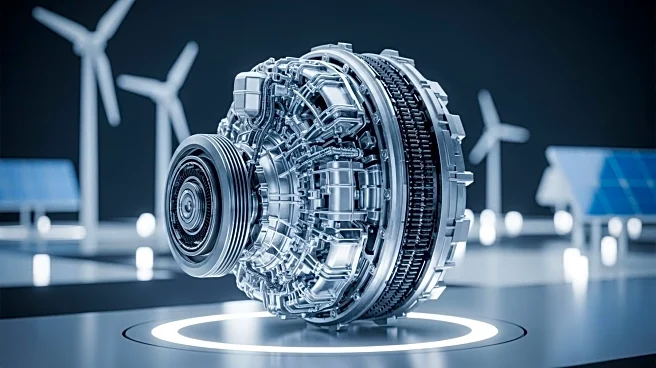What's Happening?
General Motors has announced it will cease development of next-generation hydrogen fuel cells through its Hydrotec brand, citing high costs and limited infrastructure. Meanwhile, Mercedes-Benz has joined the Renewable Carbon Initiative (RCI), aiming to use fossil-free vehicle components. GM will continue producing hydrogen fuel cells for data centers and power generation through its joint venture with Honda. Mercedes-Benz's participation in RCI aligns with its commitment to responsible resource use and developing a carbon-based circular economy.
Why It's Important?
GM's decision to halt hydrogen fuel cell development reflects the challenges faced by automakers in adopting hydrogen technology, including infrastructure limitations and high costs. This shift allows GM to focus on electric vehicles and battery technology, which have clearer market traction. Mercedes-Benz's involvement in RCI highlights the automotive industry's move towards sustainability and reducing reliance on fossil fuels. These developments could influence industry trends and investment strategies in alternative energy technologies.
What's Next?
GM will concentrate its resources on electric vehicle technology, aiming for cost reductions and increased market penetration. Mercedes-Benz plans pilot projects for 2026, exploring carbon capture and utilization for automotive plastics and bio-based carbon sources. The automotive industry may see increased collaboration among companies and initiatives focused on sustainability and renewable energy solutions.









